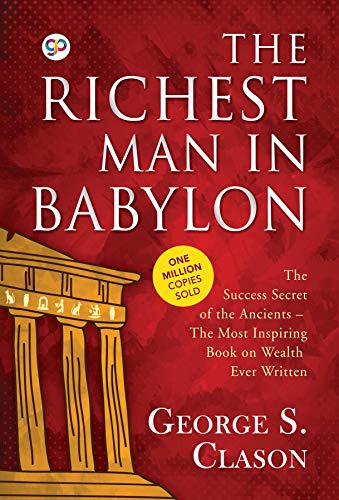The Richest Man in Babylon
The Richest Man in Babylon, written by George Clason, is still regarded as a classic of personal finance, even though it was first published in 1926, almost a century ago. The author wrote a series of pamphlets, using parables set in ancient Babylon, which were later compiled in the book.
The language is certainly old, but I intentionally kept it the original. The parables are organized in two main themes:
Seven Cures For a Lean Purse
1. Start Thy Purse to Fattering
For every ten coins thou placest within thy purse take out for use but nine. Thy purse will start to fatten at once and its increasing weight will feel good in thy hand and bring satisfaction to thy soul.
The idea is to constantly save 10% of your earnings to build wealth. A concept that I already explored in The Habit of Saving.
2. Control Thy Expenditures
That what each of us calls our ‘necessary expenses’ will always grow to equal our incomes unless we protest to the contrary.
Budget thy expenses that thou mayest have coins to pay for thy necessities, to pay for thy enjoyments and to gratify thy worthwhile desires without spending more than nine-tenths of thy earnings.
Everyone has more desires than they can afford. The idea is to control expenses so that you can pay necessities and enjoy life without spending more than nine-tenths of your earnings.
3. Make Thy Gold Multiply
I tell you, my students, a man’s wealth is not in the coins he carries in his purse; it is the income he buildeth, the golden stream that continually floweth into his purse and keepeth it always bulging.
The idea is to learn how to multiply what you have saved. Put money to work for you and collect dividend from it.
4. Guard Thy Treasures From Loss
Guard thy treasure from loss by investing only where thy principal is safe, where it may be reclaimed if desirable, and where thou will not fail to collect a fair rental. Consult with wise men. Secure the advice of those experienced in the profitable handling of gold. Let their wisdom protect thy treasure from unsafe investments.
The idea is to protect your wealth from loss. Do not risk it in get-rich-quick schemes. I certainly advise against day trading and crypto schemes such as “gains of 2 digits every week” that are usually pyramid scams.
5. Make of Thy Dwelling a Profitable Investment
Thus come many blessings to the man who owneth his own house. And greatly will it reduce his cost of living, making available more of his earnings for pleasures and the gratification of his desires. This, then, is the fifth cure for a lean purse: Own thy own home.
The idea is simple, own your own home. That may be a bit questionable for some people in modern days, but I won’t delve into that right now.
6. Insure A Future Income
Provide in advance for the needs of thy growing age and the protection of thy family.
The idea is to have an income for your future retirement.
7. Increase Thy Ability to Earn
Thus the seventh and last remedy for a lean purse is to cultivate thy own powers, to study and become wiser, to become more skillful, to so act as to respect thyself.
The idea is to develop a lifelong learning culture. Get always wiser. We increase our earning power by developing our own craft.
Five Laws of Gold
- The First Law of Gold: Gold cometh gladly and in increasing quantity to any man who will put by not less than one-tenth of his earnings to create an estate for his future and that of his family.
- The Second Law of Gold: Gold laboreth diligently and contentedly for the wise owner who finds for it profitable employment, multiplying even as the flocks of the field.
- The Third Law of Gold: Gold clingeth to the protection of the cautious owner who invests it under the advice of men wise in its handling.
- The Fourth Law of Gold: Gold slippeth away from the man who invests it in businesses or purposes with which he is not familiar or which are not approved by those skilled in its keep.
- The Fifh Law of Gold: Gold flees the man who would force it to impossible earnings or who followeth the alluring advice of tricksters and schemers or who trusts it to his own inexperience and romantic desires in investment.
